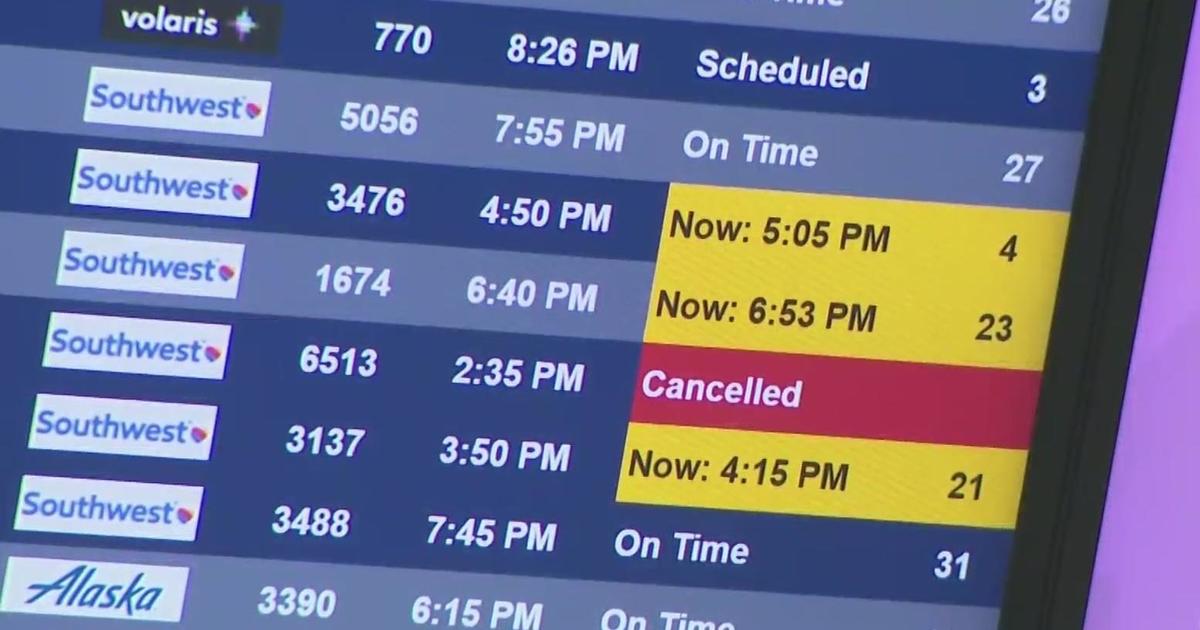Coronavirus Scam Alert: Fremont Police Lists What To Watch Out For
FREMONT (CBS SF) -- Police in Fremont are warning people not to fall for any number of coronavirus-related scams that are prevelant across the Bay Area and the country.
Some of the scams offer coronavirus home test kits or COVID-19 cures; others may ask people for their bank account to help them receive money from the government.
The Fremont Police Department urged people to be very discriminating when it comes to unsolicited offers during the coronavirus pandemic. The department noted the senior community is particularly vulnerable to victimization, and if you or a loved one receives information or requests that seem suspicious, take time to examine the request before you act.
The department noted the following ways people can be fooled:
- Scammers ask for your bank account and routing number to "help" you get your relief money.
- Scammers send fake emails that look real but are really just stealing your personal information or if you click on a link, puts malware on your computer, tablet or phone.
- Scammers call (and call and call) using illegal robocalls to pitch the latest fraud.
- Scammers use text messages and social media to get your information and your money.
Here are some ways to protect yourself and those you love from scammers:
- Don't be rushed. Whatever the call, email, text, or social media post is about, remember that scammers try to rush you. Legit people don't.
- Check it out. Before you act on something or share it – stop. Do some research. Do the facts back up the story?
- Pass it on. If you get offered something great, or you're worried about something alarming: talk to someone you trust before you act. What do they think?
In addition, general things to keep in mind when receiving unsolicited offers:
- Avoid online offers for coronavirus-related vaccines or cures; they aren't legitimate.
- Do not click on links or download files from unexpected emails, even if the email address looks like a company or person you recognize. Ditto for text messages and unfamiliar websites.
- Do not share personal information such as Social Security, Medicare and credit card numbers in response to an unsolicited call, text or email.
- Be wary of fundraising calls or emails seeking money for coronavirus victims or disease research, especially if they pressure you to act fast and request payment by prepaid debit cards or gift cards.
- Ignore phone calls or emails from strangers urging you to invest in a hot new coronavirus stock.
If you believe you have been a victim of a scam, please contact the Fremont Police Department at 510-790-6800. You can file a police report online and get more information at www.fremontpolice.gov. You can find answers to many fraud/scam-related questions here: https://www.fremontpolice.gov/crime-prevention/scams-fraud-financial-crimes.
If you need to reach Legal Assistance for Seniors, please call 510-832-3040 and leave a message or visit https://www.lashicap.org.
California Attorney General Xavier Becerra says genuine charities and telemarketers soliciting donations in California must be registered with the Attorney General's Registry of Charitable Trusts, which can be viewed online at oag.ca.gov/charities.
The online registry can be used by the public to research whether a charity is genuine, how it spends its donations and how much goes to overhead and employee salaries.
Becerra urged Californians not to give out personal information by phone, to be cautious of fraudulent "look alike" websites imitating real charities and to be wary of telemarketers.
"Give to organizations you trust," he said.
The attorney general said that anyone who is aware of a charity scam can file a complaint on his office's website at oag.ca.gov/report.



